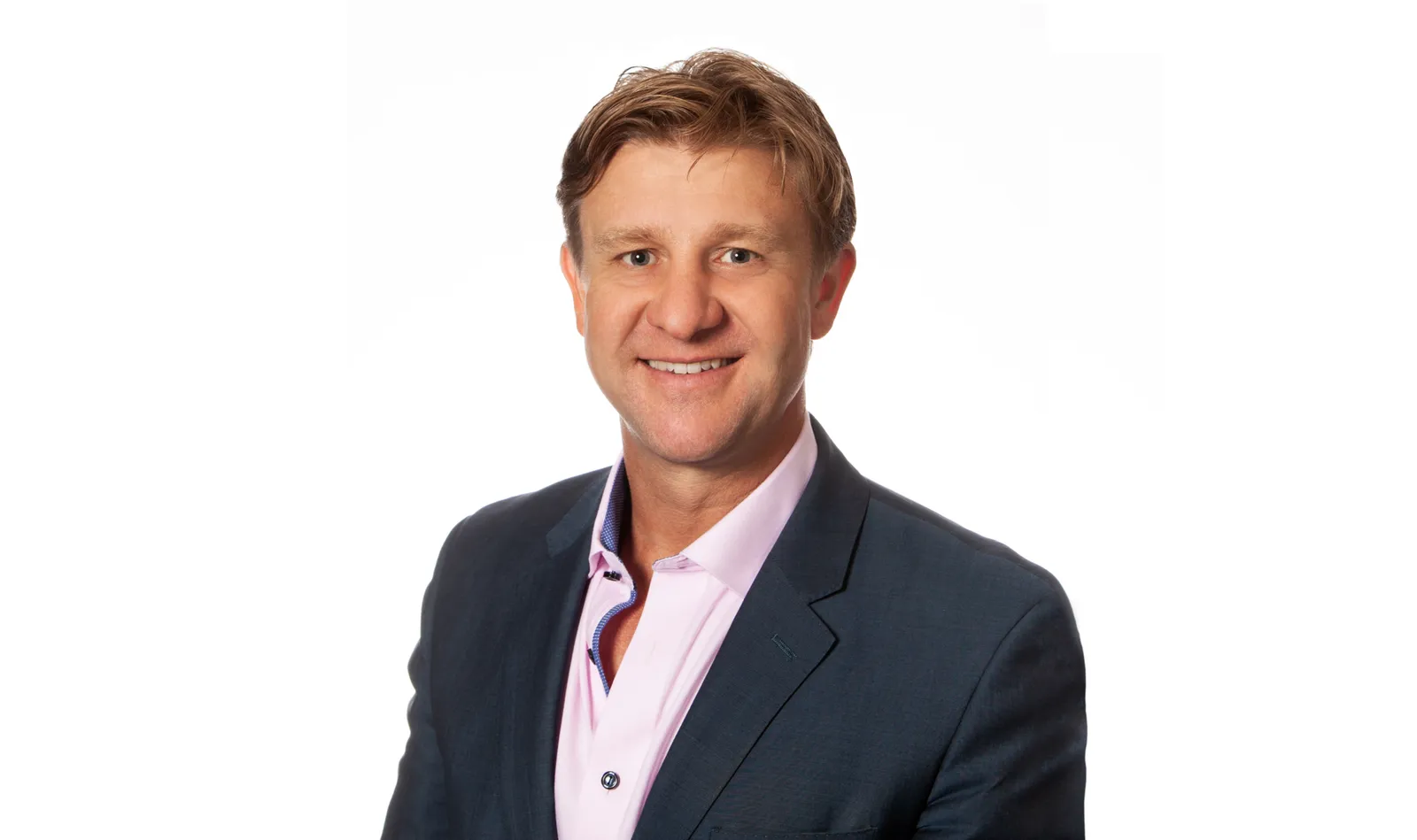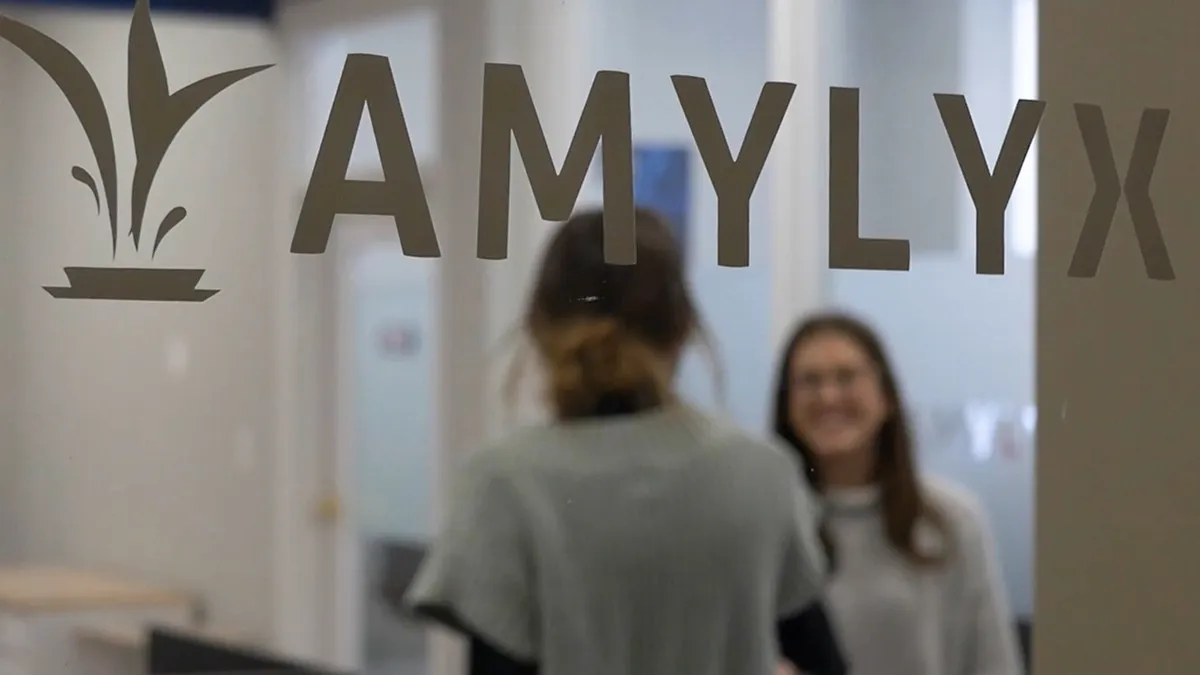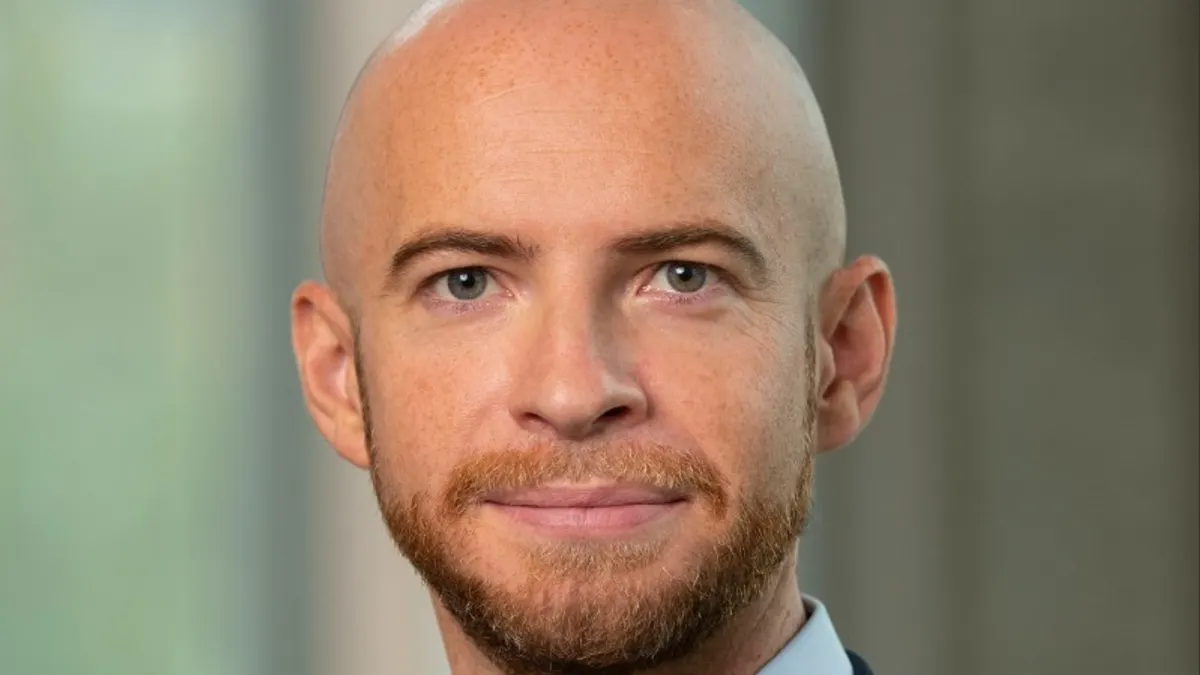It’s hard to deny how adorable the harp seal is — white and fluffy with big black eyes, and a face that looks like a stuffed animal. But in the 1980s the bays of Nova Scotia were becoming too filled with them, creating problems for the local fisheries, and the government needed to find a way to control their growing population. With the goal of avoiding castration, a team of scientists at Dalhousie University in Nova Scotia came up with an idea to use a contraceptive — but of course, that had its challenges.

“As you're probably aware, harp seals don't come back for their annual consultation as regularly as they should,” jokes Andrew Hall, CEO of IMV Inc., a clinical-stage immuno-oncology company. “So the contraceptive needed to [work for a] longer duration.”
IMV’s founding scientists developed a lipid-based contraceptive vaccine that was effective and long-lasting by packaging it in an oil-based emulsion to protect the antigens in the vaccine and release it slowly into the seal’s body. According to an IMV SEC filing, the vaccine delivery system was so effective that a single dose still worked in 90% of seals 10 years after vaccination.
The team knew they were on to something that could have a bigger impact and ultimately, the work was spun into the company IMV, which is now advancing that lipid-based delivery technology to cancer immunotherapies for humans. What makes IMV’s delivery platform, DPX, exciting and unique is that it “stays where it’s stuck,” Hall says.
“You inject it subcutaneously and it sits there, dormant, without having any interaction with the system outside of antigen-presenting cells, which are sort of the ‘hunters’ of the immune system,” he says. “We put a therapeutic under the skin, and we can guarantee it gets only to the lymph nodes.”
The therapy delivers instructions to the immune system in a natural way, allowing it to continuously interact with and stimulate the immune system over an extended period of time without going anywhere else in the body it’s not needed.
This unique system is the reason that Hall is so excited by this technology and what attracted him to IMV in 2020 after spending years at companies like Celgene and Merck & Co.
“A lot of problems with vaccines and therapeutics is that they go where they’re not supposed to. Our technology has shortcut that whole challenge by doing what it did for seals a long time ago, which is staying where it’s stuck until it’s needed,” he says. “We’re now doing that for immune-oncology in a really profound way.”
Making the leap
Immunotherapy for oncology “has been around forever,” Hall says, and uses a person's own immune system to fight cancer.
“The system’s already there and ready, but it just stops recognizing cancer as being cancer,” Hall says, noting why it sometimes needs help.
Immunotherapies flip that switch back on by stimulating or boosting a patient’s natural immune system to help them fight cancer cells, or using synthetic compounds that are immune system components, according to the American Cancer Society. However, like a lot of treatments, immunotherapies can sometimes cause more harm than good.
“We’re now looking into the window of a whole new genre of cancer treatment.”

Andrew Hall
CEO of IMV
“The biggest challenge in any immunotherapy is controlling the effect and finding a way for your therapeutic to get to the target organ, which is invariably the cancer,” Hall says. “It’s not just the target that’s important. It’s how you present a therapeutic to the target.”
Sometimes good therapies never make it through clinical development because they’re just as good at killing organs as they are at killing cancers, Hall points out. But DPX gets around that problem because it has the potential to deliver a wide range of bioactive molecules to where they’re needed. He says the “technology delivers therapeutics directly into the lymphatic system for processing of immune education — therefore completely de-risking off-target consequences.”
“We’re now looking into the window of a whole new genre of cancer treatment,” Hall says. “We’re starting to see therapeutic benefit without any toxicity consequence…It’s a treatment modality that cancer’s never seen.”
Hall estimates that they’re about two and a half years away from market with its lead candidate, Maveropepimut-S (DPX-Survivac), which combines the DPX platform and the cancer antigen survivin to generate cancer-targeted T cells in vivo.
The company’s therapeutic successes have been in ovarian cancer, where they’re in a phase 2b clinical trial that they’ll complete next year, followed by a phase 3 study.
Hall says the company considers its product a cancer vaccine which creates “steady state” for immune education, “which is remarkable.”
“Usually you give a therapeutic, and you find steady state by taking it every day if it’s a small molecule,” Hall says. “In an immune-educating therapy, steady state is unheard of because usually, if you keep pressing on the immune system it will eventually go into overdrive and create bad consequences. From a pharmacokinetic perspective we’re actually able to create a steady state of immune education.”
What’s next
The company is also making headway with a phase 2b study in diffuse large B-cell lymphoma and has demonstrated proof of benefit in bladder cancer, as well as a number of other cancers it hasn’t yet disclosed publicly.
“What does the world look like if we’re successful? I think the world starts to look like — and it’s really basic — but [fewer] people [dying] of cancer.”

Andrew Hall
CEO of IMV
Hall sees strategic partnerships and collaboration with large pharmaceutical companies as key to the future of IMV and the DPX platform. He says that the technology has the “chance to enhance the benefit of the therapeutics” that these companies have already developed. For instance, it’s already achieving this with Merck’s Keytruda, and he hopes to announce others in the next several months.
“The way in which we get to change the world, most dramatically, is by doing what we do, which is enhance the therapeutic quality or the therapeutic equipoise of a targeted therapy as broadly as we possibly can,” Hall says. “And so for that we need to be working hand in hand with strategic partners.”
He’s serious about changing the world.
“Being a bit romantic, that's what gets me up each morning,” he says. “What does the world look like if we’re successful? I think the world starts to look like — and it’s really basic — but [fewer] people [dying] of cancer.”















